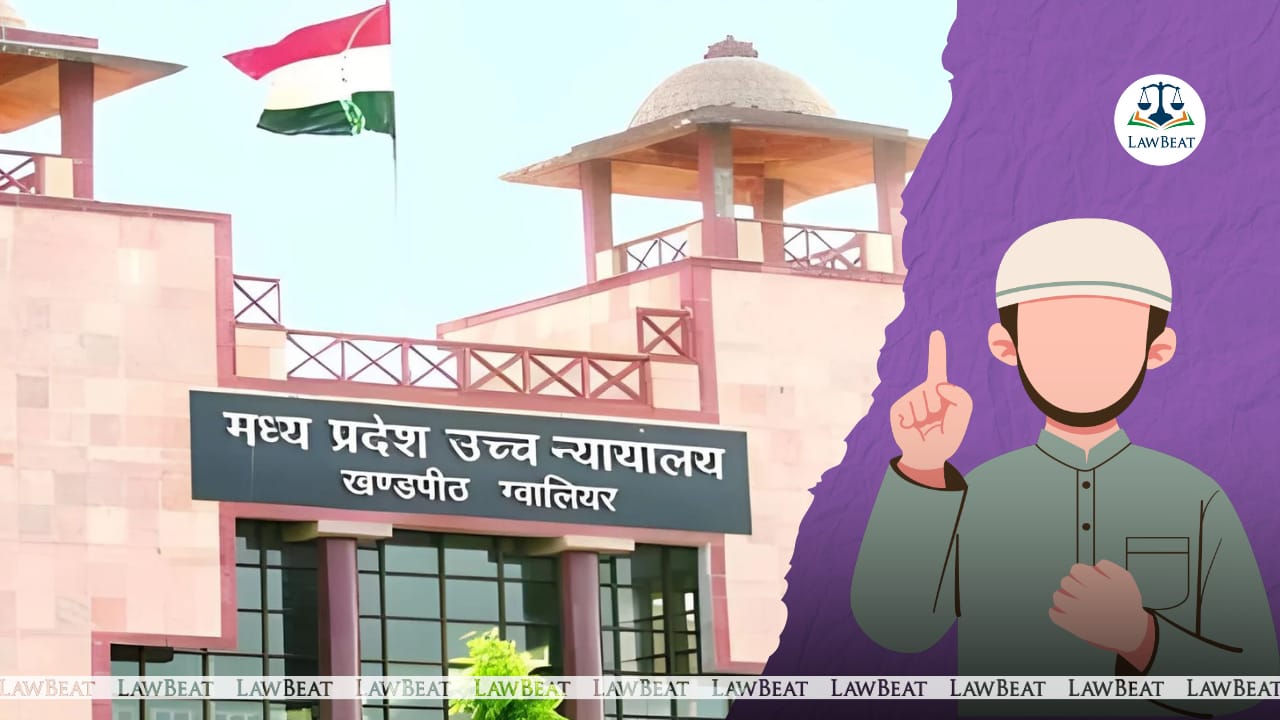Muslim Male Has Right to Seek Decree For Divorce By Family Court If Not Permitted Under Personal Law: Madhya Pradesh HC

The court emphasised that a muslim male cannot be denied the valuable right to access justice, even if the Muslim personal law does not provide specific provisions
Emphasising that the absence of a statutory provision under Muslim personal law does not leave a Muslim male remediless, the Madhya Pradesh High Court’s Gwalior bench, ruled that Muslim men, who cannot directly seek divorce under the Dissolution of Muslim Marriages Act, 1939, can approach the Family Court under Section 7 of the Family Court Act, 1984 to obtain a divorce.
A Division Bench comprising Justice Anand Pathak and Justice Hirdesh delivered the ruling. While setting aside a Family Court's decision that denied a Muslim male the right to seek a divorce decree, the High Court remanded the matter to the Family Court for adjudication.
The case originated from an appeal by Mohammad Shah, who had filed for divorce on grounds of adultery under Section 7 of the Family Court Act. The Family Court had dismissed his suit, deeming it non-maintainable under Muslim law. On appeal, the High Court addressed whether the Family Court Act allows such claims in cases where Muslim personal law does not provide specific provisions.
The court noted that while the 1939 Act provides Muslim women with the exclusive right to seek divorce, men do not have a parallel provision in the same law. It observed: “it appears from perusal of the provisions as contained into the Act of 1939 that a male does not have any way to obtain the decree for dissolution of marriage. For that purpose, one has to take recourse to the Act of 1984.”
The court pointed out that under Section 7(1)(d) of the Family Court Act, 1984, courts are empowered to adjudicate proceedings arising out of a marital relationship, regardless of community or personal law. “This provision does not distinguish on the basis of Caste and Community, therefore, it is all pervasive in nature,” the court said.
The High Court criticized the trial court’s ruling for ignoring constitutional tenets. “Even the Constitutional Morality and its Spirit also mandates that no person can be rendered remediless. If the reasoning of trial Court would have been accepted then a muslim male would have been denied the valuable right to access justice or judicial forum to ventilate his grievances. This could never have been the Constitutional spirit, morality and Constitutional Vision of Justice,” the bench stated.
The High Court concluded that the trial court had erred in dismissing the case on the grounds of maintainability. Thus, setting aside the Family Court’s dismissal, the court remanded the matter back for reconsideration.
Cause Title: Mohammad Shah v Chandani Begum [FIRST APPEAL NO. 1199 of 2022]
Appearance: Advocate F.A. Shah – for the appellant, and Advocate Nitin Agrawal – for the respondent.
